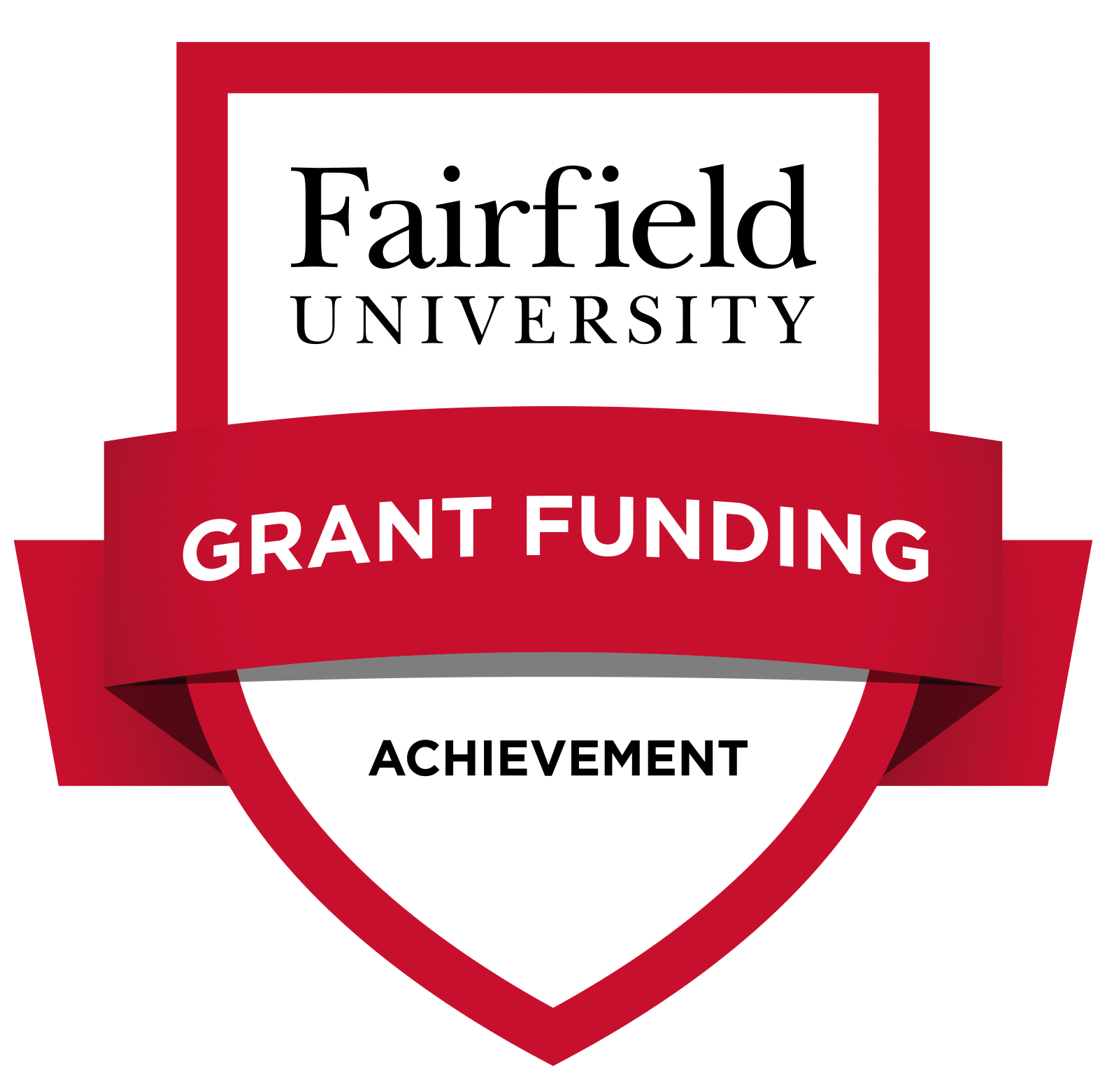Online Master of Public Administration (MPA)
Drive positive change through public leadership and policy innovation.

Your Journey Starts Now
Guidance Every Step of the Way
Why Choose an Online Master of Public Administration from Fairfield?
Tailored Degree
Tailor your degree with a specialization and stand out from the crowd. Students can choose one of 4 tracks, including non-profit, city and state management, emergency management, or healthcare administration.
Expert
Faculty
Receive individualized guidance from highly engaged faculty members who bring decades of field experience into the classroom.
Career
Ready
Gain practical skills in essential public administration topics that you can apply immediately in your day-to-day work.
Unwavering
Support
Why choose Fairfield? Our support network offers unmatched personalized support for personal, academic, and career guidance from your first admissions conversation to graduation and beyond.
Program Specifics
Our interdisciplinary program challenges students to address pressing public issues through courses emphasizing theory, research, and application. The practical training you receive will prepare you to assume leadership roles in a variety of public fields and empower you to make a positive, lasting impact in your community.
- Program Starts: Fall (September), Spring (January), Summer (May)
- Schedule: Full-time or Part-time
- Credits: 36
- Completion: 24-48 months

Fairfield’s online MPA is structured to equip future leaders of nonprofit and governmental organizations with the knowledge, skills, and tools necessary to navigate an increasingly challenging and complex societal landscape. The online MPA program offers:
- Applied learning in areas like grant writing, fiscal management, project management, human resources, data analysis, and grant writing.
- Practical training to prepare you to assume potential leadership roles in various public fields.
- Opportunities for a better understanding of your role as a public administrator and essential skills to make an immediate impact in your community.
Tuition is $36,180 ($1,005 per credit hour).
Please see the Tuition and Financial Aid page for more information.
The online MPA degree program at Fairfield University is open to students with a bachelor’s degree in any discipline, provided you have a minimum undergraduate GPA of 3.0. Receive your online MPA with no GRE required.
Applications are reviewed on a rolling basis. For any questions about application deadlines, please request more information.
It’s easy to apply for the master of public administration online program. Here are the steps:
- A completed online application.
- A non-refundable $65 application fee paid by credit card. (Application fee is waived for current Fairfield students and for anyone who attends an information session.)
- A professional resume. Applicants are required to submit a current resume that includes employment and education history.
- A personal statement of self-evaluation of work experience and career objectives.
- Official transcripts from all colleges and universities attended. A cumulative GPA of 3.0 is preferred. All foreign transcripts must be evaluated by an approved evaluating service.
- Two recommendation letters, from a current employer, supervisor, or professor. Recommendations are completed online. At the time of application, candidates must provide the email addresses and names of their two recommenders.
- Interviews. Applicants may be required to participate in an interview as part of the admission process. If required, candidates will be contacted by the program director to schedule an appointment.
Grant Writing Badges


The Grant Writing Fundamentals and Grant Funding Achievement badges validate the practical skills students develop throughout their graduate studies. These digital badges provide students with a tangible way to showcase their expertise in key areas such as grant writing, nonprofit management, and budgeting. By earning these badges, students can demonstrate their proficiency to employers, funders, and professional networks, highlighting the real-world impact of their graduate education.
The Grant Writing Fundamentals badge demonstrates proficiency in crafting compelling grant proposals and reports, clearly communicating funding needs, and developing effective fundraising strategies.
The Grant Funding Achievement badge is awarded to individuals who have successfully secured funding and demonstrated the ability to align proposals with organizational objectives.

Faculty Spotlight
Expand your industry expertise and boost your resume with a certificate that can be directly applied toward your master’s degree.
- Non-Profit Management Certificate
Non-Profit Management Certificate
We offer a Non-Profit Management Certificate you can put to use in the workforce and apply toward our Master of Public Administration program.
- Acquire the practical skills to effectively manage an impactful and financially stable organization.
- Streamline your path to a degree by applying your certificate credits directly toward an MPA without repeating any courses.
- Gain a solid understanding of the foundations of public administration while developing key competencies, such as grant writing, project management, fundraising, and budget planning.
Fall, Spring, Summer
Full-time or Part-time
8 – 12 months
$11,220 (12 credits x $935 per credit hour)
Career Outcomes
Fairfield’s online MPA program focuses on teaching the in-demand skills modern employers are looking for, making it easy for students to build an impressive resume after completing the program. Learn directly from faculty members who bring decades of professional experience into the classroom. Leverage our extensive alumni network and unrivaled career resources to support your next career move.

Curriculum Highlights
Fairfield University’s online Master in Public Administration program offers a comprehensive, practice-oriented curriculum designed to prepare students for leadership roles in government, nonprofit, and public service organizations. Students gain expertise in public administration, financial management, human resources, policy analysis, and emergency preparedness, while developing advanced skills in data analysis, research methods, and strategic decision-making. The program equips graduates to lead ethically, manage complex public systems, and make a meaningful impact in their communities through effective public service.
Data Analysis for Public Administrators
Credits – 3
Public administrators use data in a variety of ways. Data analysis is necessary for conducing policy analysis or evaluating programs and policies. Therefore, being able to understand, utilize, and apply data is a necessary part of public administration. In this course, students will learn how to utilize statistical concepts in their roles as public administrators. Students will also learn a variety of different techniques used by public administrators to analyze and evaluate programs, services, and policies.
1 Students may substitute one of the following courses for Human Resource Management:
Specializations
Public Administration Electives
Fairfield Mission
Visionary by nature. Jesuit through mission. Transformative by design. Our mission inspires us to impact the world. It prompts us to ask important questions, to embrace our social responsibilities, and to lead by example. It’s what has made us a premier institution in the Northeast. Let the mission be part of your journey.









